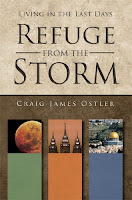Last night as I was preparing to help my dad with a presentation for Fathom the Good, we met a beautiful young lady named Lucy who reminded my dad of a singer named Lucy Thomas. I had heard of Lucy Mack Smith and Lucy from C.S. Lewis' Chronicles of Narnia, but because I had never heard of Lucy Thomas, I decided to look her up later on YouTube... Holy Smokes! What a beauty, and what a voice.
The Good Report
"We believe in being honest, true, chaste, benevolent, virtuous, and in doing good to all men; indeed, we may say that we follow the admonition of Paul—We believe all things, we hope all things, we have endured many things, and hope to be able to endure all things. If there is anything virtuous, lovely, or of good report or praiseworthy, we seek after these things." - Articles of Faith 1:13 (Disclaimer: I am not an official spokesman for the Church of Jesus Christ of Latter-day Saints)
Friday, August 18, 2023
Monday, May 15, 2023
The Gospel of Intelligence and Culture
 |
| Orson F. Whitney |
- Orson F. Whitney, "Home Literature" (Mormon Literature Website)
Wednesday, March 15, 2023
Friday, March 10, 2023
The Kry
 |
| The Kry |
- "Prends ma main" ("Take my hand")
Tuesday, November 15, 2022
The Velveteen Rabbit
- "If I find in myself desires which nothing in this world can satisfy, the only logical explanation is that I was made for another world." - C.S. Lewis, Mere Christianity
- "That unnameable something, desire for which pierces us like a rapier at the smell of bonfire, the sound of wild ducks flying overhead, the title of The Well at the World’s End, the opening lines of Kubla Khan, the morning cobwebs in late summer, or the noise of falling waves." - C.S. Lewis, Pilgrim's Regress"
- It has always seemed to me, ever since early childhood, amid all the commonplaces of life, I was very near to a kingdom of ideal beauty. Between it and me hung only a thin veil. I could never draw it quite aside, but sometimes a wind fluttered it and I caught a glimpse of the enchanting realms beyond-only a glimpse-but those glimpses have always made life worthwhile." - L.M. Montgomery, Anne of Green Gables
- «Voici mon secret. Il est très simple: on ne voit bien qu'avec le cœur. L'essentiel est invisible pour les yeux.» "And now here is my secret, a very simple secret: It is only with the heart that one can see rightly; what is essential is invisible to the eye." - Le Petit Prince, Antoine de St.-Exupéry
- "All that can be said is that everything in our life happens as though we entered upon it with a load of obligations contracted in a previous existence. There is no reason arising from the conditions of our life on this earth for us to consider ourselves obliged to do good, to be tactful, even to be polite. … All these obligations whose sanction is not of this present life, seem to belong to a different world, founded on kindness, scruples, sacrifices, a world entirely different from this one, a world whence we emerge to be born on this earth, before returning thither, perhaps to live under the empire of those unknown laws we have obeyed because we bore their teaching within us without knowing who had taught us.” (Marcel Proust, La Prisonniere, as quoted in Homo Viator by Gabriel Marcel.)"
- "We recognize what is lovely because we have seen it somewhere else, and as we walk through the world, we are constantly on the watch for it with a kind of nostalgia, so that when we see an object or a person that pleases us, it is like recognizing an old friend; it hits us in the solar plexus, and we need no measuring or lecturing to tell us that it is indeed quite perfect. It is something we have long been looking for, something we have seen in another world, memories of how things should be." - “Goods of First and Second Intent,” Collected Works of Hugh Nibley 9:528"
- "Because children have abounding vitality, because they are in spirit fierce and free, therefore they want things repeated and unchanged. They always say, 'Do it again'; and the grown-up person does it again until he is nearly dead. For grown-up people are not strong enough to exult in monotony. But perhaps God is strong enough to exult in monotony. It is possible that God says every morning, 'Do it again' to the sun; and every evening, 'Do it again' to the moon. It may not be automatic necessity that makes all daisies alike; it may be that God makes every daisy separately, but has never got tired of making them. It may be that He has the eternal appetite of infancy; for we have sinned and grown old, and our Father is younger than we." - G.K. Chesteron, Orthodoxy"
Wednesday, March 9, 2022
We Bore Their Teaching Within Us
 |
| Marcel Proust |
“All that can be said is that everything in our life happens as though we entered upon it with a load of obligations contracted in a previous existence. There is no reason arising from the conditions of our life on this earth for us to consider ourselves obliged to do good, to be tactful, even to be polite. … All these obligations whose sanction is not of this present life, seem to belong to a different world, founded on kindness, scruples, sacrifices, a world entirely different from this one, a world whence we emerge to be born on this earth, before returning thither, perhaps to live under the empire of those unknown laws we have obeyed because we bore their teaching within us without knowing who had taught us.” (Marcel Proust, La Prisonniere, as quoted in Homo Viator by Gabriel Marcel.)
Friday, February 11, 2022
The Boat
Whom Have You Tried to Bless Today?
- Whitney Montgomery
Thursday, January 27, 2022
First-Class Fighting Trim
 |
| C.S. Lewis |
Sunday, January 23, 2022
Deep and Unmet Needs
 |
| Spencer W. Kimball |
Tuesday, January 18, 2022
Ships, Like Men, Respond to Challenge
Tuesday, January 11, 2022
Turn Their Lives Over to God
 |
| President Ezra Taft Benson |
Wednesday, January 5, 2022
Quiet Down, Cobwebs
Song for a Fifth Child
Mother, oh mother, come shake out your cloth!Empty the dustpan, poison the moth,
Hang out the washing and butter the bread,
Sew on a button and make up a bed.
Where is the mother whose house is so shocking?
She's up in the nursery, blissfully rocking!
Oh, I've grown as shiftless as Little Boy Blue
(Lullaby, rockaby, lullaby, loo).
Dishes are waiting and bills are past due
(Pat-a-cake, darling, and peek, peekaboo).
The shopping's not done and there's nothing for stew
And out in the yard there's a hullabaloo
But I'm playing Kanga and this is my Roo.
Look! Aren't her eyes the most wonderful hue?
(Lullaby, rockaby, lullaby loo.)
Oh, cleaning and scrubbing will wait till tomorrow,
But children grow up, as I've learned to my sorrow.
So quiet down, cobwebs. Dust, go to sleep.
I'm rocking my baby. Babies don't keep.
Saturday, January 1, 2022
He Is Building a Palace
The Distance Narrows
 |
| Spencer W. Kimball |
Abraham Lincoln's Favorite Poem
Mortality
Thursday, August 26, 2021
How to Live in Eternity
Monday, July 12, 2021
An Interview with the Savior Himself
Thursday, April 15, 2021
Far Too Easily Pleased
 |
| C.S. Lewis |
Friday, April 9, 2021
We Find Them But Once in a While
Sunday, April 4, 2021
Get Up and Win that Race
Saturday, April 3, 2021
Show Him the Better Way
Monday, January 11, 2021
The Oyster
There once was an oyster whose story I'll tell --
Who found that some sand had slipped under his shell.
Just one little grain --but it gave him much pain --
For oysters have feelings --although they're quite plain.
Now did he berate the working of fate --
Which had led him to such a deplorable state?
No! He said to himself, as he lay on the shelf,
"If I can't remove it --I'll try to improve it."
So, the years rolled by as years always do,
And he came to ultimate destiny --stew!
But the small grain of sand which had bothered him so --
Was a beautiful pearl all richly aglow.
Now this tale has a moral for isn't it grand --
What an oyster can do with a morsel of sand?
What couldn't we do -- if we'd only begin
To enrich all those things that get under our skin.
- Anon.
Saturday, May 30, 2020
Audrey Assad
 |
| Audrey Assad |
- "Help My Unbelief"
- "Be Thou My Vision"
- "It is Well with My Soul"
- "Oh the Deep, Deep Love of Jesus"
- "How Can I Keep from Singing"
- "Even Unto Death"
Flowing Forth in Its Own Native Simplicity
 |
| The Prophet Joseph Smith |
Sunday, May 10, 2020
You Can Sing This Song When I'm Gone
Like many of his songs, James Taylor's "You Can Close Your Eyes" is timeless.
It was beautiful then, and it will always be beautiful.
Wednesday, April 15, 2020
Refuge from the Storm
Thursday, April 9, 2020
Come, Let Us Read
Monday, April 6, 2020
Friday, April 3, 2020
Within my Bosom Glows Unearthly Fire
 |
| John Milton |
I am old and blind!
Men point at me as smitten by God’s frown;
Afflicted and deserted of my kind,
Yet am I not cast down.
I am weak, yet strong;
I murmur not that I no longer see;
Poor, old, and helpless, I the more belong,
Father Supreme! to Thee.
All-merciful One!
When men are furthest, then art Thou most near,
When friends pass by, my weaknesses to shun,
Thy chariot I hear.
Thy glorious face
Is leaning toward me, and its holy light
Shines in upon my lonely dwelling-place,—
And there is no more night.
On my bended knee
I recognize Thy purpose clearly shown;
My vision Thou hast dimmed, that I may see
Thyself—Thyself alone.
I have naught to fear:
This darkness is the shadow of Thy wing;
Beneath it I am almost sacred—here
Can come no evil thing.
Oh, I seem to stand
Trembling, where foot of mortal ne’er hath been,
Wrapped in that radiance from the sinless land,
Which eye hath never seen!
Visions come and go:
Shapes of resplendent beauty round me throng;
From angel lips I seem to hear the flow
Of soft and holy song.
It is nothing now,
When heaven is opening on my sightless eyes,
When airs from Paradise refresh my brow,
That earth in darkness lies.
In a purer clime
My being fills with rapture,—waves of thought
Roll in upon my spirit,—strains sublime
Break over me unsought.
Give me now my lyre!
I feel the stirrings of a gift divine:
Within my bosom glows unearthly fire
Lit by no skill of mine.
- Elizabeth (Lloyd) Howell
Thursday, March 26, 2020
Tell Me Where is Fancy Bred?
 |
| The Trial Scene, 'The Merchant of Venice', Act IV, Scene 1. Oil on canvas. Robert Smirke © RSC Theatre Collection |
In Belmont is a lady richly left;
And she is fair, and, fairer than that word,
Of wondrous virtues: sometimes from her eyes
I did receive fair speechless messages:
Her name is Portia, nothing undervalued
To Cato's daughter, Brutus' Portia:
Nor is the wide world ignorant of her worth,
For the four winds blow in from every coast
Renowned suitors, and her sunny locks
Hang on her temples like a golden fleece;
Which makes her seat of Belmont Colchos' strand,
And many Jasons come in quest of her.
O my Antonio, had I but the means
To hold a rival place with one of them,
I have a mind presages me such thrift,
That I should questionless be fortunate!
There, take it, prince; and if my form lie there,MOROCCO
Then I am yours.
He unlocks the golden casket
O hell! what have we here?Reads
A carrion Death, within whose empty eye
There is a written scroll! I'll read the writing.
Often have you heard that told:
Many a man his life hath sold
But my outside to behold:
Gilded tombs do worms enfold.
Had you been as wise as bold,
Young in limbs, in judgment old,
Your answer had not been inscroll'd:
Fare you well; your suit is cold.
Cold, indeed; and labour lost:
Then, farewell, heat, and welcome, frost!
Portia, adieu. I have too grieved a heartTo take a tedious leave: thus losers part.
---
ARRAGON
What is here?
Reads
The fire seven times tried this:
Seven times tried that judgment is,
That did never choose amiss.
Some there be that shadows kiss;
Such have but a shadow's bliss:
There be fools alive, I wis,
Silver'd o'er; and so was this.
Take what wife you will to bed,
I will ever be your head:
So be gone: you are sped.
Still more fool I shall appear
By the time I linger here
With one fool's head I came to woo,
But I go away with two.
Sweet, adieu. I'll keep my oath,
Patiently to bear my wroth.
Or in the heart, or in the head?
How begot, how nourished?
Reply, reply.
It is engender'd in the eyes,
With gazing fed; and fancy dies
In the cradle where it lies.
Let us all ring fancy's knellI'll begin it,--Ding, dong, bell.
---
BASSANIO
What find I here?
Opening the leaden casket
Fair Portia's counterfeit! What demi-god
Hath come so near creation? Move these eyes?
Or whether, riding on the balls of mine,
Seem they in motion? Here are sever'd lips,
Parted with sugar breath: so sweet a bar
Should sunder such sweet friends. Here in her hairs
The painter plays the spider and hath woven
A golden mesh to entrap the hearts of men,
Faster than gnats in cobwebs; but her eyes,--
How could he see to do them? having made one,
Methinks it should have power to steal both his
And leave itself unfurnish'd. Yet look, how far
The substance of my praise doth wrong this shadow
In underprizing it, so far this shadow
Doth limp behind the substance. Here's the scroll,
The continent and summary of my fortune.
Reads
You that choose not by the view,PORTIA
Chance as fair and choose as true!
Since this fortune falls to you,
Be content and seek no new,
If you be well pleased with this
And hold your fortune for your bliss,
Turn you where your lady is
And claim her with a loving kiss.
A gentle scroll. Fair lady, by your leave;
I come by note, to give and to receive.
Like one of two contending in a prize,
That thinks he hath done well in people's eyes,
Hearing applause and universal shout,
Giddy in spirit, still gazing in a doubt
Whether these pearls of praise be his or no;
So, thrice fair lady, stand I, even so;
As doubtful whether what I see be true,
Until confirm'd, sign'd, ratified by you.
The quality of mercy is not strain'd,LORENZO
It droppeth as the gentle rain from heaven
Upon the place beneath: it is twice blest;
It blesseth him that gives and him that takes:
'Tis mightiest in the mightiest: it becomes
The throned monarch better than his crown;
His sceptre shows the force of temporal power,
The attribute to awe and majesty,
Wherein doth sit the dread and fear of kings;
But mercy is above this sceptred sway;
It is enthroned in the hearts of kings,
It is an attribute to God himself;
And earthly power doth then show likest God's
When mercy seasons justice. Therefore, Jew,
Though justice be thy plea, consider this,
That, in the course of justice, none of us
Should see salvation: we do pray for mercy;
And that same prayer doth teach us all to render
The deeds of mercy. I have spoke thus much
To mitigate the justice of thy plea;
Which if thou follow, this strict court of Venice
Must needs give sentence 'gainst the merchant there.
The moon shines bright: in such a night as this,JESSICA
When the sweet wind did gently kiss the trees
And they did make no noise, in such a night
Troilus methinks mounted the Troyan walls
And sigh'd his soul toward the Grecian tents,
Where Cressid lay that night.
In such a nightLORENZO
Did Thisbe fearfully o'ertrip the dew
And saw the lion's shadow ere himself
And ran dismay'd away.
In such a nightJESSICA
Stood Dido with a willow in her hand
Upon the wild sea banks and waft her love
To come again to Carthage.
In such a nightLORENZO
Medea gather'd the enchanted herbs
That did renew old AEson.
In such a nightJESSICA
Did Jessica steal from the wealthy Jew
And with an unthrift love did run from Venice
As far as Belmont.
In such a nightLORENZO
Did young Lorenzo swear he loved her well,
Stealing her soul with many vows of faith
And ne'er a true one.
In such a nightJESSICA
Did pretty Jessica, like a little shrew,
Slander her love, and he forgave it her.
I would out-night you, did no body come;---
But, hark, I hear the footing of a man.
PORTIA
That light we see is burning in my hall.
How far that little candle throws his beams!
So shines a good deed in a naughty world.














